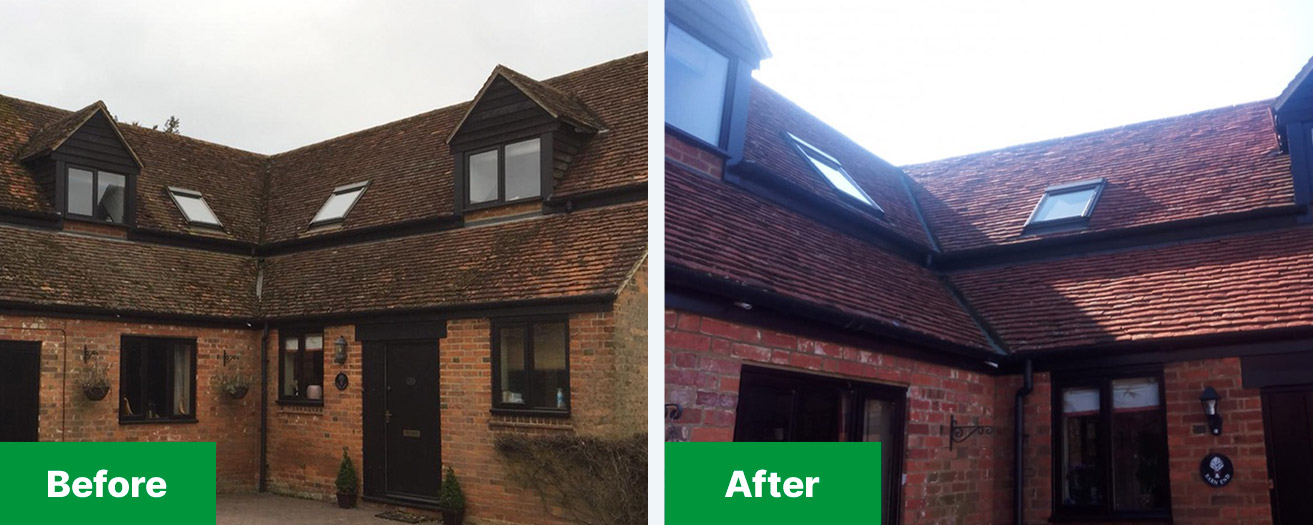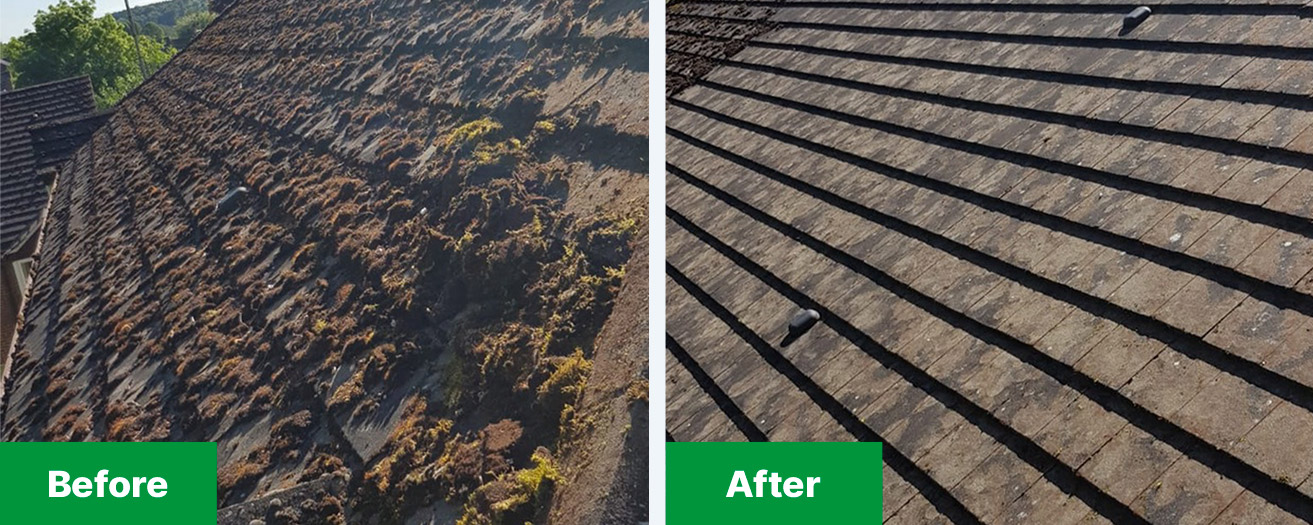

Moss is a small plant that thrives in damp and shady areas. Although moss adds an aesthetic appeal to the surroundings, it can cause significant damage to your roof. Over time, the moss can crack tiles, cause leaks, and lead to water damage. Therefore, it is essential to understand the effects of moss on your roof and the necessary measures to prevent it. In this article, we will answer the question, “Is it OK to leave moss on the roof?” and provide a comprehensive guide to moss prevention.
Is it OK to leave moss on the roof?
The short answer is no. Moss on the roof is not only unsightly but also harmful. It can cause significant damage to the roof if left unchecked. The growth of moss can crack tiles and cause blocked gutters and create gaps that allow water to seep into your home. The trapped water can lead to water damage, mould growth, and costly repairs. Therefore, removing the moss from your roof as soon as possible is necessary.
Effects of Moss on Your Roof
Moss growth on your roof can lead to various problems, including:
1. Cracked Tiles
Moss’s root-like structure penetrates the tiles’ surface, when the moss freezes it can create hairline cracks in the tiles. Over time those hairline cracks get worse and eventually tiles can begin to break up.
2. Water Damage
The trapped water in the gaps created by moss growth can lead to water damage. Water damage can be costly to repair and may cause structural damage to your home.
3. Mold Growth
Moss growth can create a favourable environment for mould growth. Mould growth on your roof can be hazardous to your health and costly to remove.
4. Decreased Lifespan of Roof
Moss growth can decrease the lifespan of your roof. The trapped water and mould growth can weaken the roof’s structure and lead to premature failure.
Preventing Moss Growth on Your Roof
Preventing moss growth on your roof is easier than removing it. Here are some preventive measures that you can take:
1. Keep Your Roof Clean
Keeping your roof clean is the most effective way to prevent moss growth. You can use a broom or leaf blower to regularly remove debris from your roof.
2. Trim Overhanging Branches
Trimming overhanging branches can prevent moss growth on your roof. The branches can block sunlight and create a damp environment in which moss thrives.
3. Install Zinc Strips
Treat your roof with a biocical roof wash to kill the organic growth and micro organisms.
6. Hire a Professional roof cleaning company
Hiring a professional to clean your roof can prevent moss growth. Professionals have the necessary tools and expertise to remove moss safely and effectively.
FAQs about Moss on Roof
Here are some frequently asked questions about moss on the roof:
Can moss grow on any roof material?
Yes, moss can grow on any roof material, although is more prominent on concrete roof tiles. Its normally grows between slates on slate roofs. Clay roofs resis moss growth for a while but can then become infested with moss.
Is moss on the roof harmful to health?
Moss on the roof is not harmful to health, but the mould growth resulting from moss growth can be hazardous to health.
Can I remove moss from my roof myself?
Yes, you can remove moss from your roof yourself, but it is advisable to hire a professional roof moss removal contractor to ensure safe and effective removal.
Can I prevent moss growth on my roof without using chemicals?
Yes, you can prevent moss growth on your roof without using chemicals. Refer to the section above on Preventing Moss Growth on Your Roof for preventive measures.
Should I pressure wash my roof?
No, see our article titles Should I pressure wash my roof.
Conclusion
Moss growth on the roof can cause damage to your home and should be removed to prevent long term damage to your property. Taking preventive measures such as removing existing moss and debris from the roof and applying a biocide roof wash can help prevent moss growth on your roof.
Call The Roof Moss Cleaners for a highly professional roof moss removal service.




